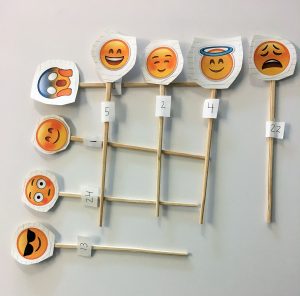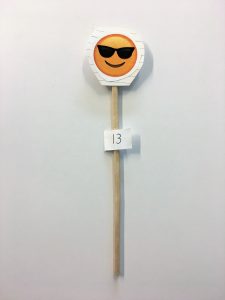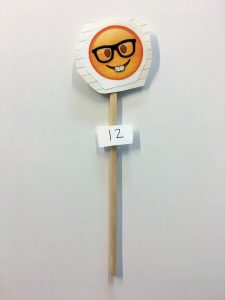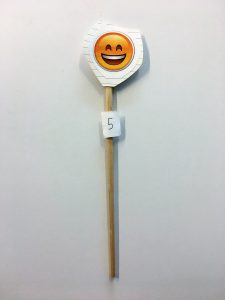
Khevna Joshi, blogger and game designer at Tiltfactor, won this year’s Dartmouth Student Employee Contest in the category of academic/professional impact. Below is her essay on how Tiltfactor helped her build skills and knowledge to develop her resume!
Upper Valley Senior Center, October 16, 1:00 PM
“So, what types of games do you like to play? Board games, card games, digital games?” I asked.
“I love card games,” one of the senior women said. “Bridge is my favorite!”
“Really?” a senior man asked. “I have my phone with me all the time, so I like playing games like Candy Crush on it.”
“Interesting.” I noted down the individual game interests of all of the seniors on the table for which I was responsible.
At Tiltfactor, we utilize psychology principles to design games that instill behavioral and attitude change. During fall term, the lab’s primary focus was to make games for the older adults living in the Upper Valley and other rural areas.
To do this effectively, we first engaged in participant recruitment. We needed to visit the Upper Valley Senior Center to figure out the game preferences of the seniors so that we could gear design toward the game modes that they themselves enjoy.
During this part of the project, I developed two important skills. First, I gained interpersonal skills that allowed me to talk to these seniors in an interactive way that made them feel comfortable revealing information that could help us design these games, which can be difficult to learn. In addition to this, I learned to identify the important points the seniors said and take quick notes that we could use for further brainstorming in the lab. This pre-brainstorming stage is part of data collection and processing, which also takes time to learn how to do efficiently.
Tiltfactor Laboratory, Black Visual Arts Center, October 20, 11:00 AM
“Alright, after tabulating all of the results, it seems that seniors seem to prefer hands-on games much more than digital games!” I exclaimed to the Tiltfactor team.
After considering this, I learned to use the preferences of others and my own logic to develop strong brainstorming skills. Near the beginning, I am not kidding when I say that I must have sat in lab and my dorm room for hours combined trying to think of a groundbreaking game idea, when it finally hit me: EMOJIS. Emojis are something that so many people can relate to, whether they are tech-savvy youngsters or old-school seniors, so I decided to draft a game that used these versatile emoticons.
Tiltfactor Laboratory, Black Visual Arts Center, November 1, 11:00 AM
Once I had the game concept, I needed to figure out the rules. I decided one player would read the event cards, create a story with the three events listed, and then the other players would guess which emoji best represents the story.
An example of three event cards that may have been picked out are “Dwayne Johnson,” “going to the beach,” and “sunny.” The person who read them may have created a story along the lines of “It was a sunny day, and my family and I decided to go to the beach. When we went to the beach, we were surprised to see Dwayne Johnson sunbathing!” The story itself could be shorter or longer, and has no strict guidelines besides the stipulation that the story must include the three events in some form. Upon listening to this story, one of the other players may guess this emoji:
Another player may instead guess this emoji:
And yet another player may hold up this emoji, which happens to be the correct one:
If someone was eventually able to guess the correct emoji (the emoji that the storyteller was trying to get the players to guess), both that person and the person telling the story would get one point. In this case, both the third person and the storyteller would receive a point because the third person guessed the correct emoji.
Another significant skill that I have learned is coherently presenting my own ideas to the lab. It was one thing to brainstorm my emoji game idea, but it was another thing to convey my idea to the team. When talking about my idea, I had to think beforehand about how to explain my game clearly for easy understanding, which was challenging but is an essential skill to possess for practically any job in the professional workplace (even a clinical neurologist, my dream job).
Tiltfactor. Design games. Change the way you think.





